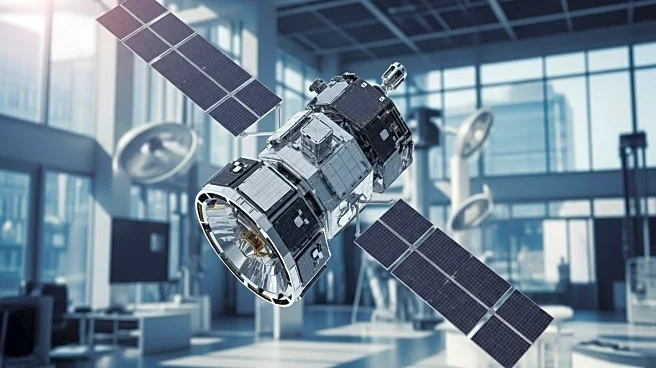What's Happening?
Planet Labs GmbH has announced plans to open a new satellite manufacturing facility in Berlin, Germany. This strategic move aims to double the production capacity of their high-resolution Pelican satellites to meet the growing demand in the European market. The investment is expected to exceed eight figures and will add up to 70 employees to the existing team of nearly 150 at Planet's European headquarters in Berlin. The facility will enhance Planet's ability to provide persistent and high-performance satellite and intelligence solutions, crucial for security and government operations. The decision underscores Germany's role as a hub for high-tech and space industry innovation.
Why It's Important?
The expansion of Planet Labs' satellite production in Berlin is significant for several reasons. It strengthens Germany's position as a leader in the space industry, creating skilled jobs and economic benefits. The facility will bolster Europe's strategic capabilities in satellite imaging, essential for security and environmental monitoring. This move aligns with Germany's ambitions to enhance its technological sovereignty and innovation in the space sector. Additionally, it supports Planet Labs' mission to provide critical data and insights globally, benefiting industries such as agriculture, forestry, and finance.
What's Next?
Planet Labs plans to continue manufacturing spacecraft at its San Francisco headquarters while expanding its operations in Berlin. The new facility is expected to be operational soon, doubling the production capacity of the Pelican satellite fleet. This expansion will enable Planet to better serve its European customers and support Germany's long-term economic growth. The collaboration with the German government highlights the importance of satellite services for modern life and crisis management, reinforcing Germany's competitiveness in the global space race.
Beyond the Headlines
The establishment of the new facility in Berlin reflects a broader trend of increasing investment in space technology and infrastructure. It highlights the growing importance of satellite imaging for various applications, including environmental monitoring and security. The move also emphasizes the need for technological sovereignty in Europe, as countries seek to reduce reliance on external providers for critical data and services. This development could lead to further innovations and collaborations in the space sector, driving advancements in satellite technology and applications.










